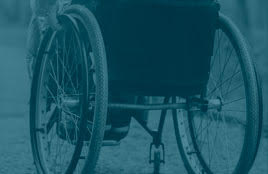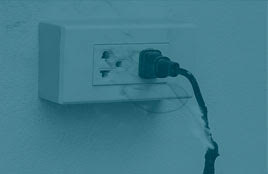The Joint Commission on Accreditation of Hospitals Organization, JCAHO, warned earlier this month that the constant beeping of alarms on patient monitors desensitizes caregivers, causing them to ignore or even disable the sounds that signal patients may be in danger.
The Joint Commission issued a “sentinel event alert” to hospitals, saying that the problem of “alarm fatigue” can jeopardize patients, and it urged hospitals “to take a focused look at this serious patient safety issue.’’
Between January 2009 and June 2012, the group received reports—all submitted voluntarily by hospitals—of 80 alarm-related deaths and 13 serious alarm-related injuries. JCAHO noted that hospitals are not required to report these events, so the numbers of deaths and injuries are likely far higher.
Many medical devices have alarm systems; among them are bedside monitors that include ECG (electrocardiogram) machines, pulse oximetry devices, and monitors of blood pressure and other parameters; bedside telemetry; central station monitors; infusion pumps; and ventilators. These alarm-equipped devices are essential to providing safe care to patients in many health care settings. Clinicians depend on these devices for information they need to deliver appropriate care and to guide treatment decisions. However, these devices present a multitude of challenges and opportunities for health care organizations when their alarms create similar sounds, their default settings are not changed, or when there is a failure to respond to their alarm signals. If you have ever visited a busy ICU, the clamor of beeps, buzzes and alarms can be confusing and noisy.
The number of alarm signals per patient per day can reach several hundred, depending on the unit within the hospital, translating to thousands of alarm signals on every unit and tens of thousands of alarm signals throughout the hospital every day. As a result, nurses and other healthcare workers become desensitized or immune to the sounds—they suffer from “alarm fatigue.”
In response to this constant barrage of noise, clinicians may turn down the volume of the alarm, turn it off, or adjust the alarm settings outside the limits that are safe and appropriate for the patient—all of which can have serious, often fatal, consequences.
One such example occurred in the summer of 2010, where a 60-year-old man died in the intensive care unit of a hospital—not from the injury he was admitted to the hospital for, but from a system failure that resulted in delayed response to an alarm that showed that his condition was deteriorating. Staff responded only after one hour, when a critical alarm signaled that the patient had stopped breathing—but the damage had already been done. The patient sustained irreversible brain damage from a lack of oxygen, and several days later he was removed from life support. This unanticipated death was the result of a significant problem that occurs every day, in many hospitals in the country—a failure to respond to alarm signals in a timely manner.
The Joint Commission recommends that hospitals take several steps, including identifying alarm-equipped medical devices used in high-risk areas and for high-risk conditions, and deciding how they should be set; identifying situations when alarm signals are not clinically necessary; establishing guidelines for tailoring alarm settings and limits for individual patients; training caregivers on safe alarm management and response in high-risk areas; and considering how to reduce nuisance alarm signals.
No nurse or health care provider should simply march into a patient’s room and flick off a monitor or alarm without looking at the patient and assessing what has caused the alarm to sound off. No nurse or health care provider should ignore alarms and let them ring incessantly, simply because they assume they know why the alarm is going off, or because they’ve heard it all day.






